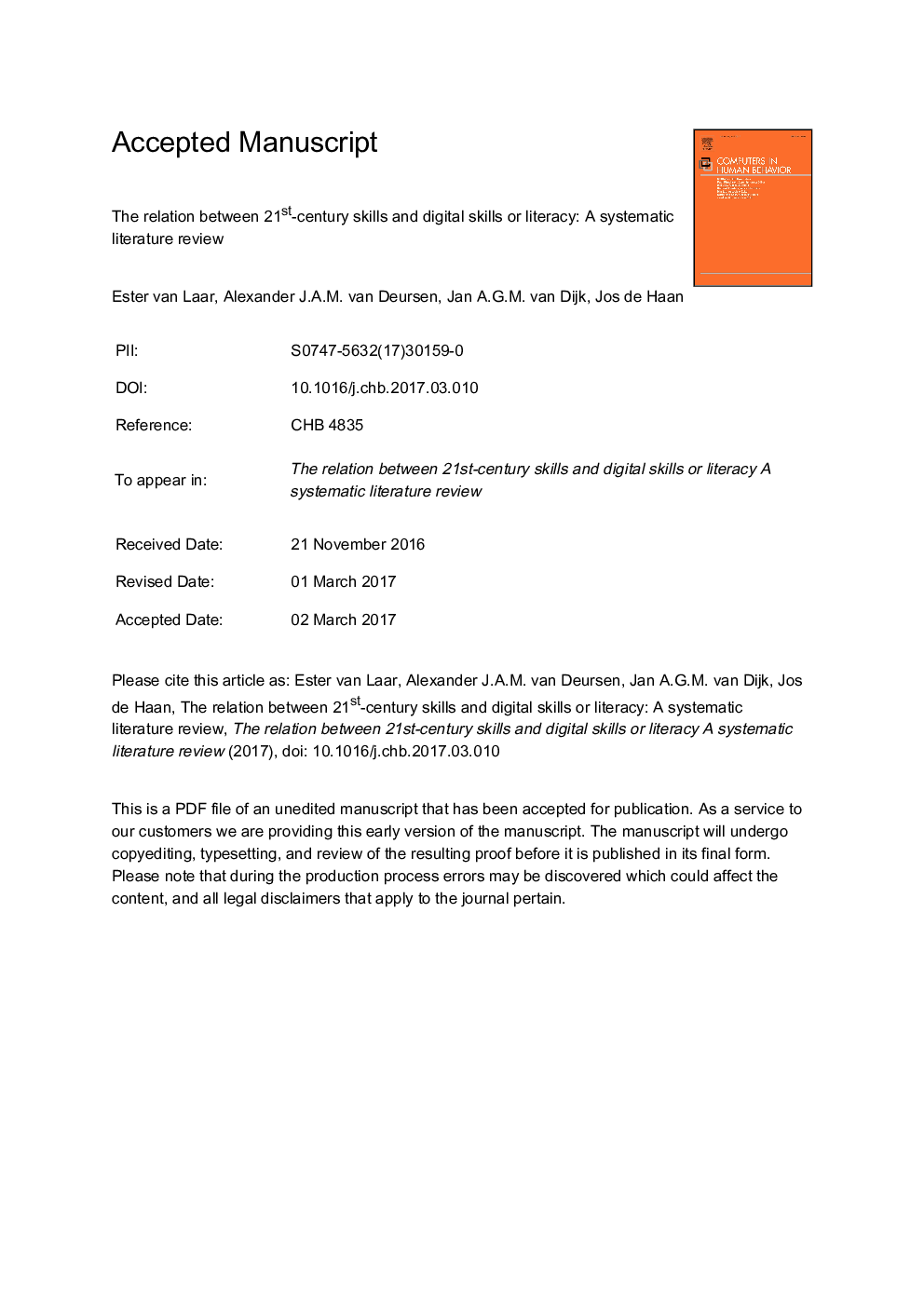| Article ID | Journal | Published Year | Pages | File Type |
|---|---|---|---|---|
| 4937126 | Computers in Human Behavior | 2017 | 42 Pages |
Abstract
Innovation starts with people, making the human capital within the workforce decisive. In a fast-changing knowledge economy, 21st-century digital skills drive organizations' competitiveness and innovation capacity. Although such skills are seen as crucial, the digital aspect integrated with 21st-century skills is not yet sufficiently defined. The main objectives of this study were to (1) examine the relation between 21st-century skills and digital skills; and (2) provide a framework of 21st-century digital skills with conceptual dimensions and key operational components aimed at the knowledge worker. A systematic literature review was conducted to synthesize the relevant academic literature concerned with 21st-century digital skills. In total, 1592 different articles were screened from which 75 articles met the predefined inclusion criteria. The results show that 21st-century skills are broader than digital skills - the list of mentioned skills is far more extensive. In addition, in contrast to digital skills, 21st-century skills are not necessarily underpinned by ICT. Furthermore, we identified seven core skills: technical, information management, communication, collaboration, creativity, critical thinking and problem solving. Five contextual skills were also identified: ethical awareness, cultural awareness, flexibility, self-direction and lifelong learning.
Related Topics
Physical Sciences and Engineering
Computer Science
Computer Science Applications
Authors
Ester van Laar, Alexander J.A.M. van Deursen, Jan A.G.M. van Dijk, Jos de Haan,
